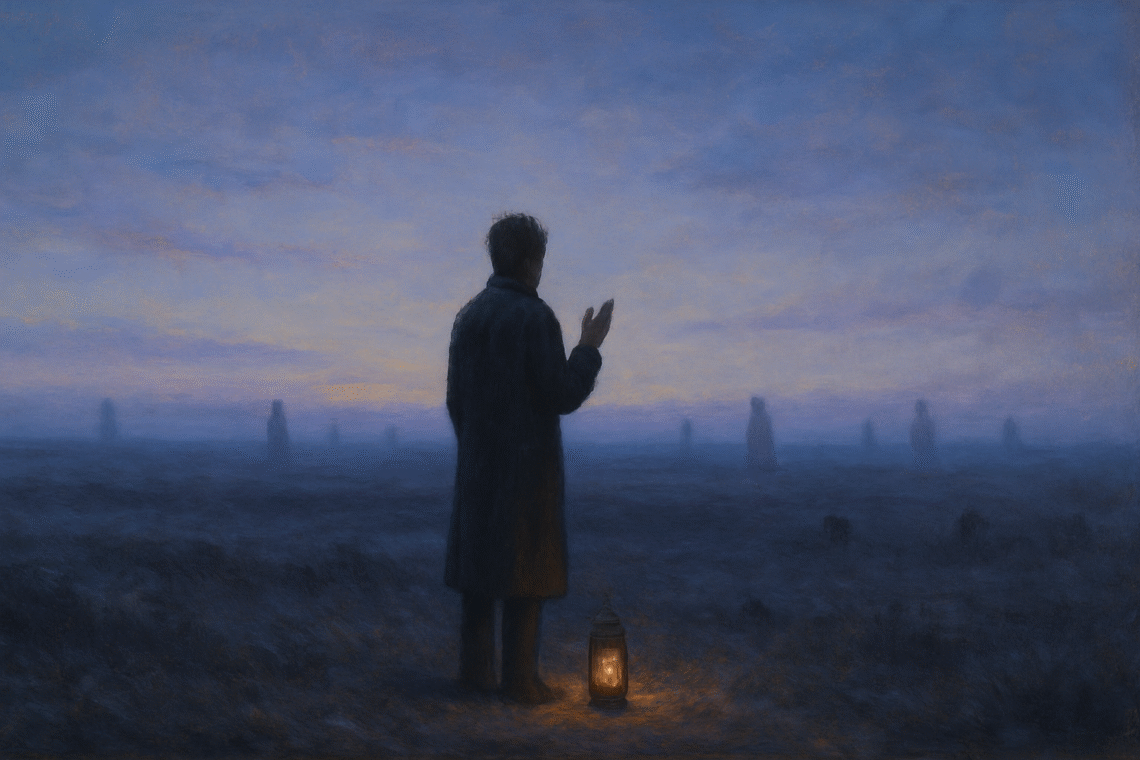There are silences that suffocate, and silences that save. The difference, I’ve come to believe, lies not in the absence of sound, but in the presence of meaning.
I once sat in a chapel with no roof, its cross splintered by time and salt. The ocean roared in the distance. The people who used to worship there had long since fled a war, a flood, or perhaps simply poverty’s slow erosion. And yet, in that hollowed-out space, I felt something like prayer hanging in the air. Not words, not memory exactly, just the quiet insistence that something sacred had been spoken there once, and might be again.
I begin here, because our public life today often feels like such a ruin. Language, once cathedral-like in its capacity to inspire, uplift, or even gently rebuke, is now weaponised or discarded altogether. We speak less to be understood than to be obeyed. We listen not for wisdom but for weakness. We react, we retort, we repost, but rarely do we respond.
And yet, amid all this noise, I dare to hope.
If this series has shown anything, it is that words are fragile things. They can be twisted by power, flattened by machines, distorted by echo chambers, or stripped of their dignity when those at the margins are denied a voice.
But the answer to fragility is not silence. It is care.
When a violin is fragile, we do not stop playing it, we learn how to tune it better. When a manuscript is fading, we do not throw it out, we preserve it, restore it, decipher it anew.
So too with language.
What we need now is not louder speech, but deeper speech.
Language that can hold contradiction without collapsing into cynicism. Language that refuses cruelty even when it is fashionable. Language that names injustice, yes, but also whispers joy, confesses longing, blesses the world even as it wrestles with it.
This kind of speech begins not in the halls of government or the pages of headlines, but in kitchens, quiet walks, late-night phone calls, shared benches, and honest prayers. It is less about performance and more about presence.
It is, in short, the language of the soul.
In times of great cultural exhaustion, it is tempting to retreat into quietism, to let the silence speak for itself. And sometimes, silence is the only faithful response. But when silence becomes complicity, when it erases rather than heals, when it shelters injustice rather than protects the vulnerable, it must be answered.
We must speak, not always with certainty, but always with integrity.
To speak into the silence is to believe that language, though fragile, still matters.
To speak into the silence is to risk misunderstanding in order to offer meaning.
To speak into the silence is to remember that while power may shout, truth often speaks in a whisper.
It is no small thing to choose words wisely in a world that squanders them.
It is no small act to speak kindly when cruelty sells better.
It is no small revolution to write with reverence, to listen with generosity, to let your speech be seasoned with grace.
And so, dear friend, as we draw this series on public language to a close, let me offer you a commission or perhaps more fitting, a benediction.
Speak. Not just when it’s safe, but when it’s needed.
Speak. Not to dominate the room, but to make space in it.
Speak. Not because your words are perfect, but because silence alone cannot carry the weight of hope.
Let your voice be one that repairs, not ruptures.
Let your language be one that bridges, not breaks.
Let your speech be part of the long, sacred work of making meaning again.
For in the end, it is not power or algorithms or platforms that shape the future.
It is people who dare—still—to speak into the silence.





